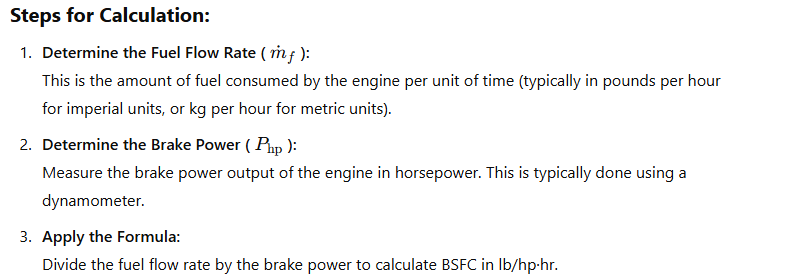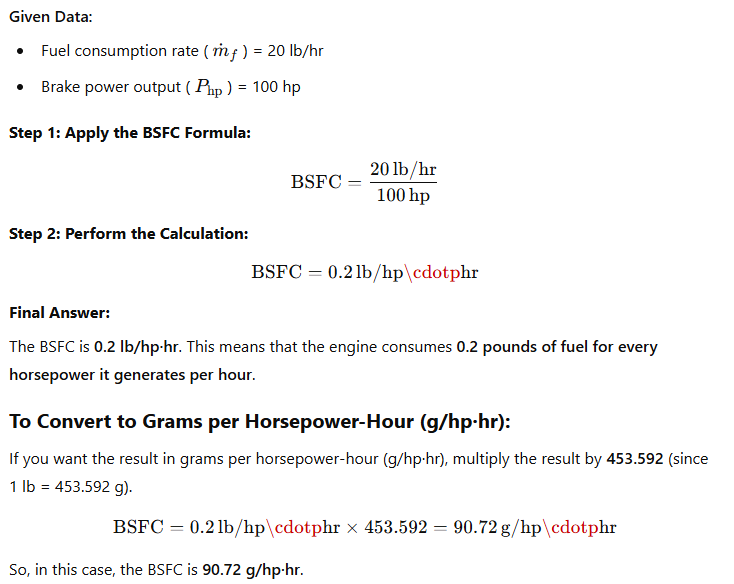Brake Specific Fuel Consumption (BSFC) is a measure of an engine’s fuel efficiency. It indicates how much fuel (in pounds) the engine consumes to produce one horsepower for one hour. BSFC is expressed in pounds of fuel per horsepower per hour (lb/hp/hr).
A lower BSFC value means the engine is more efficient, as it uses less fuel to generate the same power.
Typical BSFC Values
BSFC depends on the type of engine and its efficiency:
- Naturally Aspirated Engines: 0.40–0.50 lb/hp/hr
- Forced Induction (Turbo/Supercharged) Engines: 0.55–0.65 lb/hp/hr
- Highly Efficient Engines: Values closer to 0.30–0.40 (rare in typical automotive engines)
How to Calculate BSFC



Interpretation:
- A lower BSFC value indicates better fuel efficiency.
- If the BSFC were higher, it would suggest the engine is less efficient in converting fuel into power.
Factors Affecting BSFC
- Air-Fuel Ratio (AFR): Leaner mixtures tend to improve fuel efficiency and reduce BSFC, but overly lean mixtures can lead to knock or engine damage.
- Engine Load: Higher loads often improve efficiency (lower BSFC) up to a certain point.
- Engine Design: Combustion efficiency, compression ratio, and turbocharging significantly impact BSFC.
- Tuning and Modifications: Adjustments to ignition timing, cam profiles, or forced induction systems can alter BSFC.
By understanding and optimizing BSFC, tuners and engineers can improve an engine’s efficiency and performance.
